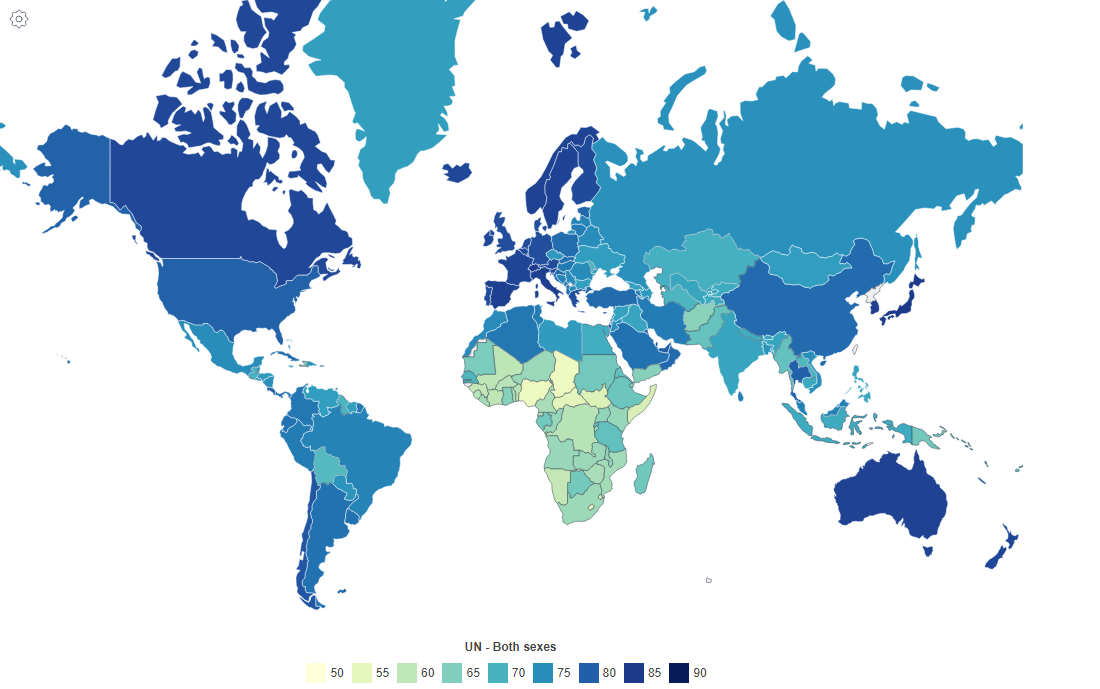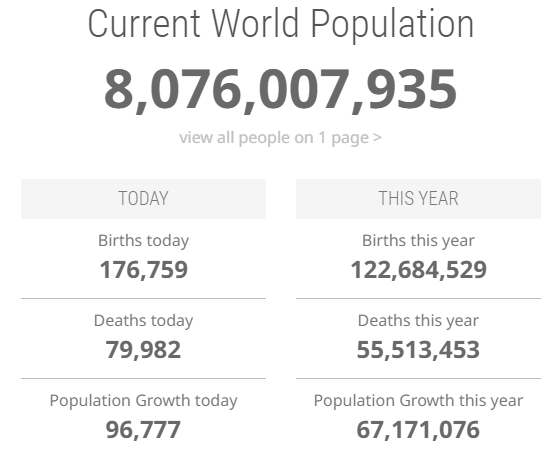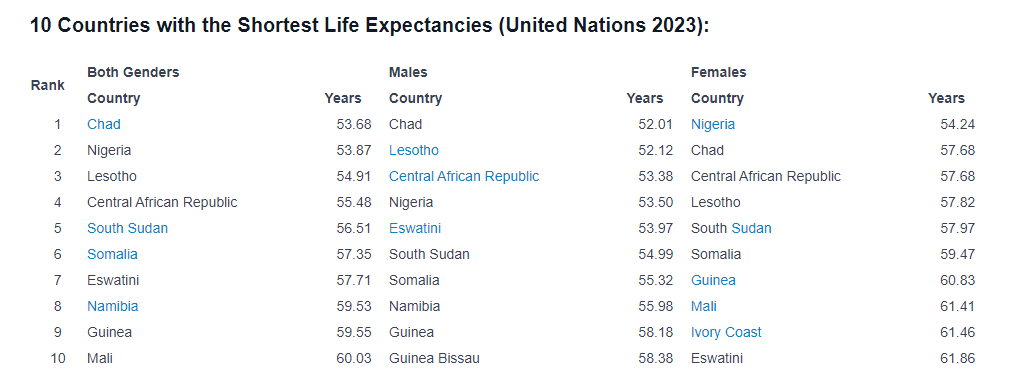Countries with lowest life expectancy as of 2023
 Illustrative photo (Getty Images)
Illustrative photo (Getty Images)
Not many of us have thought about how life expectancy varies in different corners of the world, in which countries men and women die the fastest and what factors influence it. We have gathered interesting information on the Earth's population and where people live the shortest lives, according to World Population Review, Worldometer, and Wikipedia.
What determines life expectancy
The life expectancy of both an individual and a country's population as a whole depends on a number of important factors:
- Social and economic conditions (they affect overall well-being, the risk of diseases, or stress)
- Education (higher levels of education lead to a better understanding of health and a healthy lifestyle)
- Nutrition (balanced and quality nutrition helps the body live longer)
- Lifestyle (an active lifestyle helps maintain health and well-being)
- Genetics (genetic factors play a crucial role in life expectancy)
- Harmful habits (excessive alcohol, cigarettes, or drug use leads to higher population mortality)
- Environmental conditions (pollution and environmental issues affect the health of individuals and populations as a whole)
- Cultural and religious characteristics (they influence people's attitudes towards health and longevity)
Life expectancy worldwide
According to the United Nations, as of 2023, the average life expectancy worldwide was 73.4 years:
- 70.8 years for men
- 76.0 years for women
However, life expectancy varies significantly depending on the region and country. In 2023, it ranged from a low of 57.7 years (in West Africa) to a high of 82.7 years (in Western Europe).
Overall, according to researchers, the life expectancy of the world's population is increasing (from 2000 to 2016, the average life expectancy worldwide increased by 5.5 years).

Average life expectancy in the world (infographic: worldpopulationreview.com)
World population
Scientists emphasize that the longevity of people depends most on three main factors: genetics, gender, and lifestyle (including hygiene, diet, culture, physical exercise, occupation, access to medical care, and even crime rates). Therefore, it's not surprising that life expectancy varies in different countries.
Data from the statistical portal Worldometers as of November 30, 2023, indicate that the current global population is over 8 billion people (approximately 8.076 billion).

Over 55.5 million people died in the world last year (infographic: worldometers.info)
Countries with the shortest life expectancy
According to the UN data, the lowest life expectancy is observed in African countries. The top ten countries with the shortest life expectancy include:
1. Republic of Chad (in North Central Africa)
2. Federal Republic of Nigeria (in West Africa)
3. Kingdom of Lesotho (in Southern Africa)
4. Central African Republic (in Central Africa)
5. Republic of South Sudan (in East Africa)
6. Federal Republic of Somalia (in Northeast Africa)
7. Kingdom of Eswatini or Ngwane (in Southeast Africa)
8. Republic of Namibia (in Southwest Africa)
9. Republic of Guinea (in West Africa)
10. Republic of Mali (in Northwest Africa)

Infographic: worldpopulationreview.com
The average life expectancy (for both men and women) in these countries ranges from 53.68 years to 60.03 years.
Men have the shortest life expectancy in Chad - 52.01 years.
Women live the least in Nigeria - 54.24 years.

